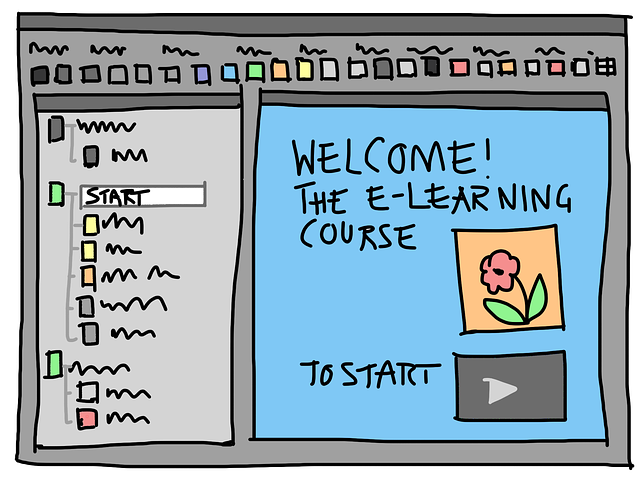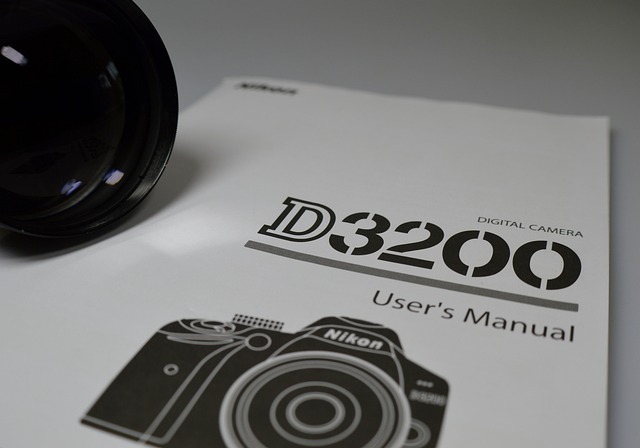In summary, enhancing accessibility through specialized UK Play Scripts and Screenplays Translation Services is crucial for global cultural exchange and inclusivity in the arts. These services break language barriers, enable diverse audiences to engage with British narratives, and preserve artistic integrity. By addressing current challenges and implementing best practices, translation services ensure theatrical productions resonate worldwide while fostering cross-cultural understanding. This digital age accessibility revolution benefits both creators and audiences, enriching the global performing arts landscape.
In today’s diverse society, enhancing accessibility in dramatic arts is paramount. This article explores how UK Play Scripts and Screenplays translation services can revolutionize theatre by breaking down barriers for audiences with language needs or disabilities. We delve into the importance of accessibility, dissecting current challenges faced by the UK industry. Through step-by-step guides, case studies, and legal insights, we uncover practical solutions to foster an inclusive theatrical landscape, leveraging technology to ensure everyone can enjoy dramatic works.
- Understanding the Importance of Accessibility in Dramatic Arts
- The Current Landscape: Barriers to UK Play Scripts and Screenplays
- Benefits of Translation Services for Inclusive Theatre
- Making Play Scripts Accessible: A Step-by-Step Guide
- Case Studies: Successful Translation Projects in Practice
- Legal and Ethical Considerations in Script Translation
- Building an Industry Standard for Accessibility
- The Role of Technology in Facilitating Access
- Encouraging Diversity through Inclusive Storytelling
Understanding the Importance of Accessibility in Dramatic Arts

In the realm of dramatic arts, accessibility is more than just a nicety; it’s a game-changer. Ensuring that plays and screenplays are accessible to all audiences, including those with language barriers or disabilities, enriches cultural experiences significantly. This inclusivity fosters a vibrant tapestry where diverse folks can engage with and appreciate UK play scripts and screenplays on equal footing. By providing translation services for foreign language works, we enable a broader spectrum of people to participate in the artistic narrative, enhancing both accessibility and understanding.
In today’s interconnected world, these services are crucial. They not only cater to non-English speaking audiences but also offer new perspectives on classic UK plays and modern screenplays. Such initiatives ensure that the dramatic arts remain dynamic, relevant, and accessible to a global community. This is particularly important given the therapeutic and educational benefits of theatrical performances and cinematic storytelling, making accessibility an essential aspect of cultural preservation and enhancement.
The Current Landscape: Barriers to UK Play Scripts and Screenplays

The current landscape for accessibility in dramatic works presents several challenges, particularly when it comes to UK play scripts and screenplays. One significant barrier is the lack of universal translation services tailored to this specific domain. While professional interpretation and localization are available for various industries, the artistic nuances and unique cultural references inherent in plays and screenplays often go unnoticed or inadequately translated. This results in a fragmented market where only a select few productions gain global exposure, limiting diversity and opportunities for lesser-known talents.
Moreover, the process of translating these works requires specialized knowledge to capture the essence of dialogue, stage directions, and subtle cultural nuances. Many existing translation services either lack this expertise or are focused on more mainstream media, leading to subpar results that may alter or misrepresent the original intent. Enhancing accessibility through improved UK play scripts and screenplays translation services is crucial to ensuring that these artistic expressions can reach a broader, international audience without compromising their integrity.
Benefits of Translation Services for Inclusive Theatre

In today’s diverse society, ensuring accessibility in the arts is more important than ever. This holds especially true for theatre, a powerful medium that can be elevated by reaching a broader audience. Translation services play a pivotal role in enhancing inclusivity within this creative sector, particularly when it comes to UK play scripts and screenplays. By providing language interpretation for non-English speaking performers and audiences, these services open doors to dramatic works, fostering an environment where cultural boundaries blur and artistic expression knows no borders.
The benefits are multifaceted; for one, it encourages a more diverse talent pool, allowing performers from various linguistic backgrounds to contribute their unique perspectives. Moreover, translation enables theatre productions to connect with communities across the UK and beyond, enriching cultural exchange. Whether adapting classical plays or contemporary screenplays, these services ensure that the essence of the narrative is preserved while making it accessible to a wider range of audiences, ultimately enriching the theatre experience for all.
Making Play Scripts Accessible: A Step-by-Step Guide

Making play scripts accessible is a vital step in ensuring that dramatic works reach a broader audience, including those with language barriers or disabilities. Here’s a simplified guide to enhancing accessibility, especially relevant for UK-based play script and screenplay providers.
1. Translation Services: Start by offering professional translation services tailored for the performing arts. Partnering with expert translators who understand theatrical terminology can ensure accuracy in conveying intricate dialogue and stage directions. Provide options for both written scripts and audio translations to accommodate different user preferences.
2. Format and Structure: Ensure that translated scripts maintain the original work’s structure and intent. Use industry-standard formatting, making it easy for readers and performers to navigate. Include clear indications of character names, stage directions, and speaker attributions to avoid confusion during production. Regularly update your translation library, especially with newer plays and diverse linguistic requirements.
Case Studies: Successful Translation Projects in Practice

Successful translation projects for UK play scripts and screenplays demonstrate the power of accessibility in enhancing cultural exchange and audience reach. One notable example is a collaboration between a London-based theatre company and a leading translation service, aiming to bring a contemporary Greek play to British audiences. The project involved not just translating the text but also adapting it for a modern UK context, ensuring cultural relevance and theatrical viability. This approach not only broadened the play’s appeal but also fostered cross-cultural understanding.
The translation team employed various strategies, including extensive research on British cultural norms and references, consultation with UK theatre professionals, and close collaboration with the original author to maintain the essence of the work. The result was a critically acclaimed production that attracted a diverse range of spectators. This case study highlights how professional translation services can transform dramatic works, making them accessible, engaging, and culturally resonant for new audiences in the UK.
Legal and Ethical Considerations in Script Translation

When translating UK play scripts and screenplays for a global audience, it’s crucial to navigate complex legal and ethical territories. The copyright and intellectual property rights of the original work must be respected, with translations requiring explicit permission from the rightsholder, especially when adapting for new formats or languages. This is essential to prevent unauthorized use and ensure the creator’s recognition.
Ethical considerations also come into play, particularly regarding cultural sensitivity and translation accuracy. The nuances of language, humor, and cultural references must be carefully handled to avoid losing the original work’s essence. Professional translators with expertise in both the source and target languages are vital to preserving the dramatic integrity while making the content accessible to diverse audiences worldwide. This involves not just word-for-word translation but a nuanced understanding of the play or screenplay’s artistic vision.
Building an Industry Standard for Accessibility

In the dynamic landscape of dramatic arts, accessibility is no longer a peripheral consideration but a fundamental necessity. To achieve this, establishing an industry standard for accessible content creation is paramount. The UK plays a pivotal role in setting these standards, especially with its rich theatrical heritage and diverse talent pool. By integrating best practices such as providing comprehensive captions for performances, offering audio descriptions for visually impaired audiences, and ensuring clear and concise language, the industry can make dramatic works inclusive to all.
This shift towards accessibility isn’t just a moral imperative; it’s also a strategic move to broaden the audience reach. UK Play Scripts and Screenplays Translation Services play a crucial role in this initiative by facilitating the translation of content into multiple languages. This not only makes performances accessible to non-native speakers but also enriches cultural exchange, ensuring that dramatic works from across the globe can find their place under the spotlight.
The Role of Technology in Facilitating Access

In today’s digital age, technology plays a pivotal role in enhancing accessibility to dramatic works, including UK play scripts and screenplays. Online platforms and advanced search tools make it easier for writers, directors, and enthusiasts to discover and acquire texts from diverse cultural backgrounds. Translation services have also become invaluable, breaking down language barriers and making international content more accessible to a wider audience.
Digital libraries and databases offer a vast array of resources, allowing users to filter and access scripts based on genre, author, or even specific accessibility requirements. This not only democratizes access to dramatic literature but also fosters inclusivity by ensuring that people from different linguistic and cultural backgrounds can participate in and contribute to the performing arts.
Encouraging Diversity through Inclusive Storytelling

In an effort to enhance accessibility, it’s crucial to embrace diversity in storytelling. The UK plays and screenplays industry has a unique opportunity to represent and include various voices and experiences. By encouraging inclusive practices, we can ensure that dramatic works reflect the rich tapestry of our society. This means actively seeking out and promoting scripts that challenge stereotypes, highlight underrepresented communities, and offer fresh perspectives.
Translation services play a vital role in this endeavor. They enable access to international plays and screenplays, enriching the diversity of content available to UK audiences. By providing accurate and culturally sensitive translations, these services open doors for global storytelling, fostering a more inclusive theatrical landscape. This, in turn, encourages new voices and perspectives, ensuring dramatic works remain dynamic and relevant in an ever-changing world.
By breaking down barriers with effective translation services, we can significantly enhance accessibility to dramatic works in the UK. This includes play scripts and screenplays, fostering inclusive storytelling and enriching cultural experiences for all. Through legal and ethical considerations, industry standards, and technological advancements, we can ensure that diverse voices are represented on stage and screen, ultimately building a more accessible and vibrant theatrical landscape.
